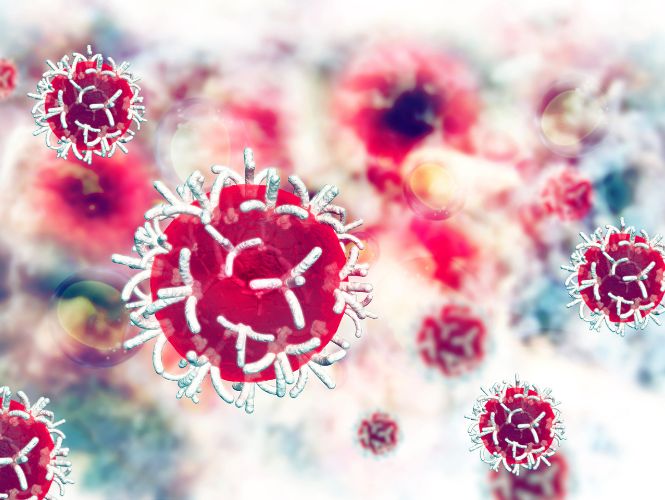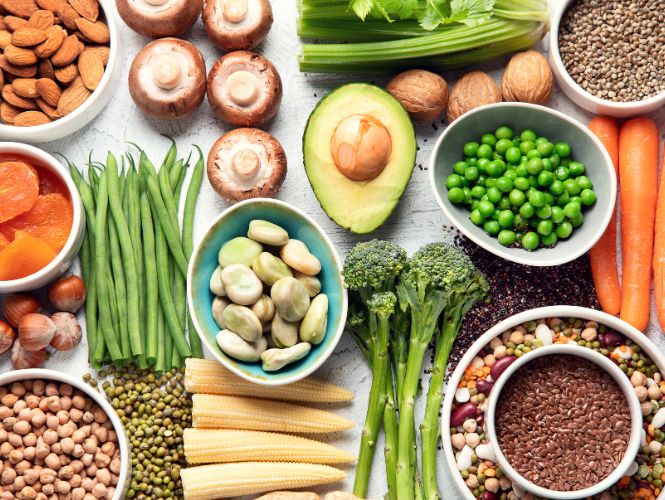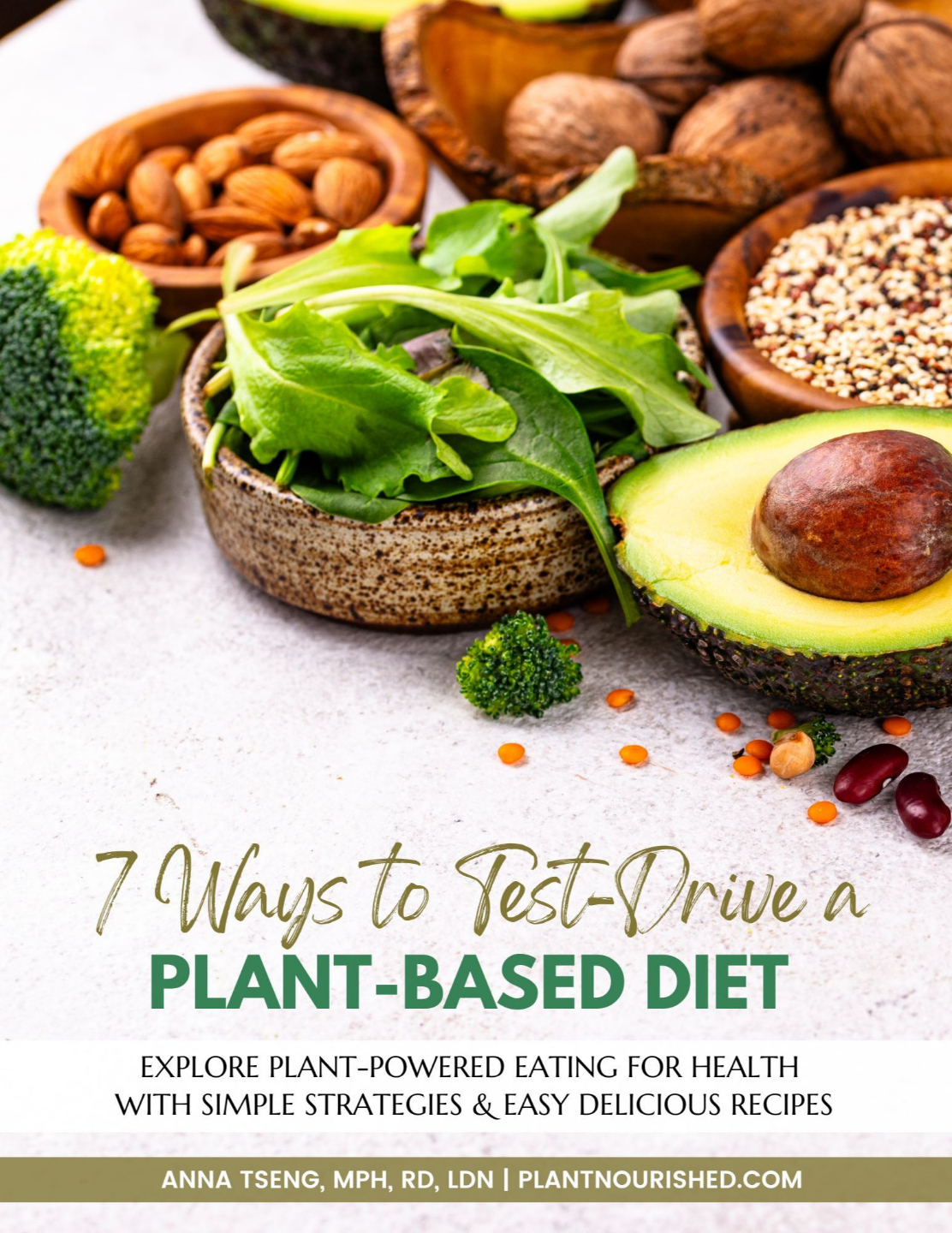How Plant-Based Diets Can Help Reduce Cancer Risk
Apr 09, 2023
Have you, a loved one or a close friend been affected by that ‘C’ word…cancer? Chances are, you have. This article looks at how important diet and lifestyle are in regard to cancer development and what recent research is telling us about the impact of plant-based diets on cancer risk.
A Disease That Hits Close to Home

Most of us can probably name at least one friend, acquaintance, coworker or loved one who is either currently suffering from cancer, is in remission or has bravely but unsuccessfully fought that battle. And that’s not surprising.
Worldwide, cancer ranks as one of the leading causes of death. In fact, based on reported World Health Organization 2020 statistics, it was responsible for almost 10 million deaths, or nearly 1 in every 6 deaths. Isn’t that staggering? According to the Centers for Disease Control and Prevention, it is also the second leading cause of death in the United States. The most common causes of cancer death are lung, colon, rectum, liver, stomach and breast.
Lifestyle or Genetics?
What exactly is cancer? Simply put, the term ‘cancer’ refers to a large group of diseases that can impact any part of our bodies. It occurs when normal cells are transformed into tumor cells through a multi-stage evolution process that turns them malignant.

While most may think that genes play a huge significant role in chronic disease development, the opposite is true. Our lifestyle and the environment actually account for 90 – 95 percent of our most chronic disease conditions, and genetics only 5 – 10 percent. And of this, diet as a factor is estimated to contribute to 30 – 35 percent of cancer deaths. Isn’t that surprising?
The Impact of Plant-Based Eating
So can eating a whole food, fiber-rich plant-based diet reduce your chances of developing certain types of cancer? Many large-scale epidemiological studies to date seem to indicate this, and more research will likely be published in the near future. Here are just two highlights:
In 2022, a US-based study by Fenglei Wang and colleagues was published. In this study, researchers analyzed 123,773 participants from the Nurses' Health Study and the Health Professionals Follow-up Study. Plant-based diet quality was assessed along with the development of colorectal cancer. The result? It was found that while an unhealthy plant-based diet rich in refined grains and sugar was associated with higher colorectal cancer incidence, a healthy plant-based diet rich in whole grains, fruits and vegetables was associated with a lower incidence of colorectal cancer.

In another study, the risk of cancer was assessed in 472,377 UK Biobank participants. After an average follow-up of 11.4 years and documenting the types of cancers diagnosed in this prospective cohort, it was found that in comparison to regular meat-eaters, being a low meat-eater, fish-eater, or vegetarian was all associated with a lower risk of all cancer. The overall cancer risk was 2 percent lower among those who ate meat five times or less per week, 10 percent lower among those who ate fish but not meat, and 14 percent lower among vegetarians and vegans, compared to those who ate meat more than five times per week. What’s more, vegetarians had significantly less risk of prostate cancer and post-menopausal breast cancer compared to regular meat-eaters.
From just the two studies highlighted in this article, it can be seen that there is indeed an association between a more plant-based eating pattern and less cancer risk. So, if you would like to cut your risks of cancer development, consider adopting a whole food plant-based diet.
Where More Future Research is Needed
It should be noted, though, that quite a few previously published large-scale epidemiological studies have lumped together vegans, vegetarians, and unhealthy plant-based diet patterns together when assessing the impact of eating meatless diets compared to meat-based diets. It is not surprising then, I feel, that the results in some of these studies have been found to be insignificant or uncertain. More studies differentiating between healthy and unhealthy plant-based diets are needed in the future, in order to gain an even clearer picture of the impact of high fiber, whole food plant-based diets on cancer incidence and mortality rates. Thankfully, research appears to be moving in this direction, as researchers are beginning to understand the importance of assessing plant-based diet quality when conducting research.
Sources:
- Cancer. World Health Organization. February 3, 2022. Accessed March 31, 2023.
- Leading Causes of Death. Centers for Disease Control and Prevention. Reviewed January 18, 2023. Accessed March 31, 2023.
- Anand P, Kunnumakkara AB, Sundaram C, et al. Cancer is a preventable disease that requires major lifestyle changes. Pharm Res. 2008 Sep;25(9):2097-116. Accessed March 31, 2023.
- Wang F, Ugai T, Haruki K, et al. Healthy and unhealthy plant-based diets in relation to the incidence of colorectal cancer overall and by molecular subtypes. Clin Transl Med. 2022 Aug;12(8):e893. Accessed March 31, 2023.
- Watling CZ, Schmidt JA, Dunneram Y, et al. Risk of cancer in regular and low meat-eaters, fish-eaters, and vegetarians: a prospective analysis of UK Biobank participants. BMC Med. 2022 Feb 24;20(1):73. Accessed March 31, 2023.



